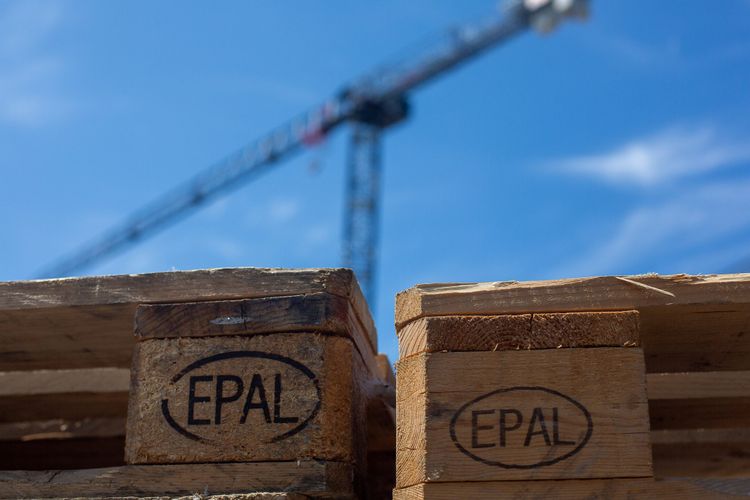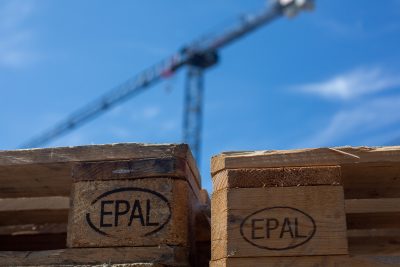EU carbon tariffs are bad trade policy | East Asia Forum

Writer: Amita Batra, Jawaharlal Nehru University (JNU)
The rules that establish the carbon border adjustment mechanism (CBAM) of the EU became effective on 16 May 2023. The CBAM, which enforces a cost on the carbon released both directly and indirectly while producing high-carbon goods entering the EU, will be executed in two stages.

Starting from October 1, 2023, there will be a period of transition that will include the inclusion of carbon-intensive imports in six industries: aluminium, cement, electricity, fertilizers, iron and steel, and hydrogen. During this phase, importers will only be required to provide reports. However, as of January 1, 2026, the CBAM charge will come into effect and will be applicable to imports from all nations, except those that are part of the EU Emissions Trading System (ETS) or have a similar carbon pricing mechanism.
The CBAM is anticipated to promote the reduction of carbon emissions worldwide while also preventing the escape of carbon. However, a thorough examination of the CBAM's structure and proposed execution uncovers inherent discrepancies and conflicts with international climate and trade agreements, as well as the EU's free trade agreements. If not appropriately modified, the CBAM might be enforced more as a means of excluding trade rather than as an effective approach to combat climate change.
In a departure from the idea of sharing the responsibility under the Paris Agreement, the CBAM does not differentiate or provide any special treatment or exceptions for developing countries and least developed countries (LDCs). Considering that developing countries and LDCs have limited abilities to establish their own carbon markets or a comprehensive system for monitoring and reporting the intensity of carbon emissions from production processes, there should have been a fair distribution of the burdens in the CBAM.
The unfair structure is additionally strengthened by the reality that the funds obtained from CBAM fees will be allocated to the European Union's financial resources rather than being employed to support programs promoting development in developing nations or least developed countries.
The decision to withdraw from the Paris Agreement becomes even more obvious when compared to the promises made by the EU in its trade agreements. The EU has consistently included a clear mention of the commitments in the Paris Agreement in the trade and sustainable development sections of their recent free trade agreements. Interestingly, the EU and New Zealand free trade agreement, signed in June 2022, introduces the possibility of utilizing trade penalties for any violations that go against the goals and principles of the Paris Agreement.
The CBAM seems to contradict the multilateral trade rules as well. The core principles of the World Trade Organization (WTO), which are based on fair treatment and equal opportunity, seem to be clouded by the CBAM. The principle of most favoured nation status ensures that similar products are not treated unfairly based on the country they come from, while national treatment aims to avoid discrimination between domestically produced goods and similar imported goods.
The European Union's reason for treating similar products differently is rooted in the varying carbon levels of imported goods. However, the use of different procedures and manufacturing techniques among countries can result in differing amounts of carbon placed within a "similar" product. This means that the Carbon Border Adjustment Mechanism (CBAM) could potentially become an unfair tax at the border, leading to potential confrontations at the World Trade Organization (WTO).
When it comes to the principle of national treatment, the EU claims that the CBAM is in line with it because it treats domestically produced goods and imported goods equally. They argue that the CBAM is an extension of the ETS, which is already applied to products within the country. However, it's worth noting that as of April 2023, there are only 73 national or sub-national carbon pricing mechanisms in place, which only cover around 23% of global greenhouse gas emissions. It's difficult to imagine how the CBAM can achieve a sense of 'equivalence' among imports from countries that have chosen different methods of climate regulation.
The underlying belief of the CBAM goes against the concept of 'self-differentiation' and also brings up the crucial issue of how it affects other territories.
Even if we take a wide interpretation of the overall exemptions listed in Article XX of the General Agreement on Trade and Tariffs, it may not be enough to convincingly show that the CBAM adheres to the rules of the World Trade Organization. The European Union will still have to show evidence that the CBAM treats all parties fairly and does not harm international trade under the guise of other intentions.
In the wider trade context, the difficulty of implementing the CBAM introduces an element of unfairness. Since there is a strong chance that the CBAM will lead to retaliatory carbon border taxes, trade driven by global value chains will require the creation of rules determining where each part and component comes from, taking into consideration its carbon emissions. This will be a challenging undertaking, especially in intricate global value chains that involve numerous border crossings of parts and components. It will exceed the administrative and institutional capabilities of many developing nations.
One of the main points to consider is that the basic idea of 'carbon leakage' is proven wrong by the information we have. After thoroughly studying past research, it is clear that there isn't enough solid proof to support the need for a Carbon Border Adjustment Mechanism (CBAM) due to a significant level of carbon leakage. When considering the expenses related to protecting the environment, other factors such as labor costs, production factors, clear regulations, a steady policy environment, and property rights are likely to have a much larger impact on investment decisions, even for industries that contribute to pollution.
Now that the CBAM has become a topic of discussion for the India-EU Trade and Technology Council, it is crucial for India to demand that the EU takes appropriate measures. This is necessary to prevent the valuable diplomatic efforts made by developing countries and LDCs in achieving fair results in global climate and trade negotiations from going to waste because of the CBAM.
Amita Batra holds the position of Economics Professor at the School of International Studies at Jawaharlal Nehru University.
This article was originally published on Business Standard's website.























































